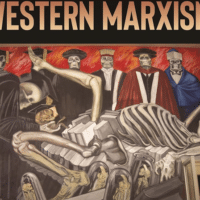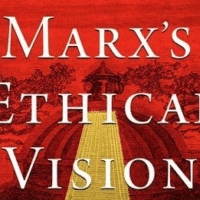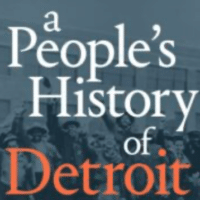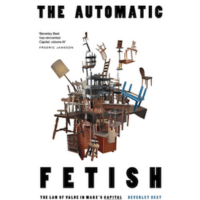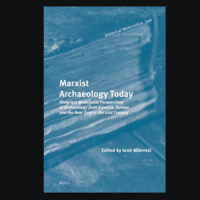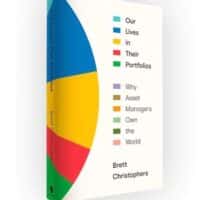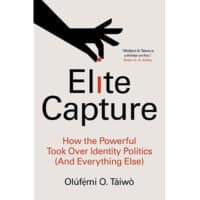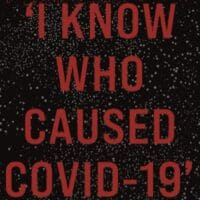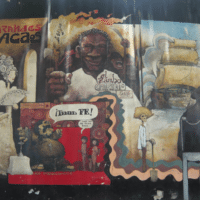-
The Shadow Gospel & Why Religion Went Obsolete – Book Review(s)
Karl Marx’s description of religion as the ‘opiumof the people,’ in his 1844 A Contribution to the Critique of Hegel’s Philosophy of Right, constitutes one of his most famously misinterpreted statements.
-
‘Racism and ‘Free Speech’’ by Anshuman A Mondal, ’The Age of Choice: A History of Freedom in Modern Life’ by Sophia Rosenfeld reviewed by Guy Lancaster
‘The Ethics of Belief,’ an 1877 essay by Cambridge mathematician and philosopher William K. Clifford, begins with the story of a fictional shipowner whose seagoing vessel, he himself acknowledges, might not be as sound as should be.
-
Review: Marijam Did – “Everything to Play For: How Videogames Are Changing the World”
Videogames are everywhere.
-
Domenico Losurdo: “Western Marxism: How it was Born, How it Died, How it can be Reborn”
Thought-provoking and polemical as ever, the recent publication of Domenico Losurdo’s “Western Marxism: How it was Born, How it Died, How it can be Reborn”, finally provides English readers with access to the prolific Italian philosopher and militant’s penultimate book.
-
Tony McKenna: “Has Political Correctness Gone Mad? The Anatomy of a Right-Wing Conspiracy Theory” – Book Review
We are all familiar with the charge that some policy or decision is a case of ‘political correctness gone mad’, part of the rhetoric of the ‘culture wars’, but we may not have thought a great deal more about it.
-
“Marx’s Ethical Vision” – Book Review
There is much to say on behalf of Vanessa Christina Wills’ Marx’s Ethical Vision, which not only advances Marxist scholarship but takes a strong, well-founded position regarding some of the most vexing and significant questions confronting anyone who would grasp his philosophical thought.
-
“A People’s History of Detroit” – Book Review
Composing a history of Detroit is an exercise in tying together many economic and social trends within a microcosm of class, race, and fraught politics. Mark Jay and Philip Conklin’s work discusses the 20th-century history of the city to offer a documentation of class struggle seen through the industrialization of the city in the early 20th century, the racial tensions of the post-World War II period, and, finally, the simultaneous processes of decay and development in the last three decades.
-
“Beauvoir and Belle: A Black Feminist Critique of The Second Sex” – Book Review
Belle and Beauvoir proves to be a much needed contribution on a neglected topic. Importantly, it comes at a time when theorists are calling for both greater conceptual clarity on how systems like capitalism and racism interact as well a return to the thought of Black women Marxists and communists.
-
Beverley Best – “The Automatic Fetish: The Law of Value in Marx’s Capital”
Capitalist crises cannot only be measured by its catastrophic effects on society, but also by the reception of their most staunchest critique: Karl Marx’s Capital.
-
Ianir Milevski (ed) “Marxist Archeology Today: Historical Materialist Perspectives in Archeology from America, Europe and the Near East in the 21st Century”
Archeology has always been a political science. Since its inception the field has attempted to trace our lineage as a species along the lines of identity, territory and culture. Though often portrayed as a discipline slightly closer to the hard sciences than historiography, it is much closer to its distant cousin in the social sciences than towards anything resembling an empirical practice.
-
Brett Christophers: “Our Lives in Their Portfolios: Why Asset Managers Own the World”
Since the global financial crisis, big banks have taken a backseat, and asset managers have become the—often self-appointed—new experts and administrators of capitalism.
-
Ernest Mandel – “Hope and Marxism: Historical and Theoretical Essays”
Some of Ernest Mandel’s finest work on Marxist theory and revolutionary politics appeared in the form of short articles. “Hope and Marxism” collects eleven of Mandel’s most significant articles and provides an excellent introduction to his thought.
-
Review: Vivek Chibber – “The Class Matrix: Social Theory after the Cultural Turn”
The Class Matrix concisely and systematically argues the case for the continued importance of class for the radical left today. Vivek Chibber rigorously debunks various long held understandings that characterise radical left thought since the cultural turn.
-
Olúfẹ́mi O Táíwò – “Elite Capture: How the Powerful Took Over Identity Politics (And Everything Else)”
The culture wars are back with a vengeance, if they ever actually left us.
-
Review: Richard Wolin – “Heidegger in Ruins: Between Philosophy and Ideology”
The philosophical community knows by now that philosopher Martin Heidegger was fiercely antisemitic and personally drew connections between his philosophy and his support for Nazi ideology.
-
Sven-Eric Liedman – ‘The Game of Contradictions: The Philosophy of Friedrich Engels and Nineteenth Century Science’
Liedman portrays Engels’ alternative picture of science as a ‘non-reductive materialism’ characterised by a deep confidence in the unity of knowledge and by an equally deep resistance to treating any level of reality as totally determined by another. Engels’ account of scientificity—of what shape a legitimate theory can take—was modelled both on Marx’s theory of capitalism and on Darwin’s theory of evolution.
-
Levy del Águila Marchena: ‘Communism, Political Power and Personal Freedom in Marx’
Marx diagnosed the oppression of the working class, the alienation of workers from their labor, as well as the alienation of all human beings living within capitalism from their own authentic selves, and proposed that it was objectively possible that emancipation, true liberation, would come one day.
-
Review: ‘I Know Who Caused COVID-19’: Pandemics and Xenophobia
A critical review of a Lacanian individualist approach by a fan of Rob Wallace, and chief of infectious disease at Mount Sinai in NY.
-
David Vine- “United States of War: A Global History of America’s Endless Conflicts, from Columbus to the Islamic State”
With World War III looming on the horizon as a very real possibility, now is a more critical time than ever to understand the history and motives of the United States, the world’s greatest hegemon.
-
Review: Enrique S Rivera – “The Untold Story of Capitalism: Primitive Accumulation and the Anti-Slavery Revolution”
Every May 10th marks Afro-Venezuelan Day and commemorates the 1795 Coro Rebellion. The May 1795 revolutionary events are the centerpiece of Enrique S. Rivera’s The Untold History of Capitalism: Primitive Accumulation and the Anti-Slavery Revolution.




